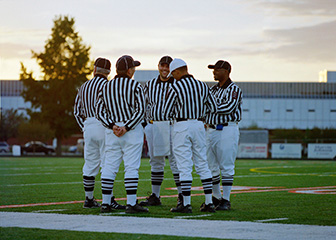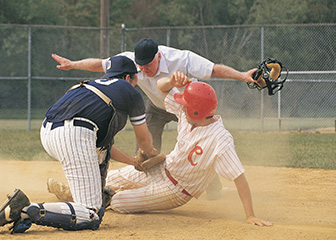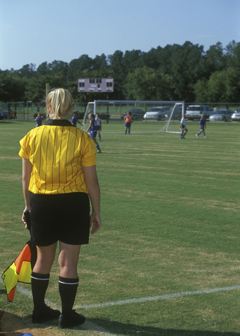Summary

| Quick Facts: Umpires, Referees, and Other Sports Officials | |
|---|---|
| $22,840 per year | |
| High school diploma or equivalent | |
| None | |
| Long-term on-the-job training | |
| 19,500 | |
| 20% (Faster than average) | |
| 3,900 | |
What Umpires, Referees, and Other Sports Officials Do
Umpires, referees, and other sports officials preside over competitive athletic or sporting events. They detect infractions and decide penalties according to the rules of the game.
Work Environment
Umpires, referees, and other sports officials work indoors and out, in all types of weather. They often work irregular hours, including evenings, weekends, and holidays. Those who work full time usually work more than 40 hours per week for several months during their sport’s season. Some officials must travel to sporting events.
How to Become an Umpire, Referee, or Other Sports Official
Education and training requirements vary by the level and type of sport. In all sports, these jobs require immense knowledge of the game, which umpires, referees, and other sports officials usually get from years of experience at lower levels. Some officiating jobs require vocational training.
Pay
The median annual wage of umpires, referees, and other sports officials was $22,840 in May 2010.
Job Outlook
Employment of umpires, referees, and other sports officials is expected to grow 20 percent from 2010 to 2020, faster than the average for all occupations. Those seeking part-time work at schools should have the best job opportunities.
Similar Occupations
Compare the job duties, education, job growth, and pay of umpires, referees, and other sports officials with similar occupations.
O*NET
O*NET provides comprehensive information on key characteristics of workers and occupations.
Contacts for More Information
Learn more about umpires, referees, and other sports officials by contacting these additional resources.





